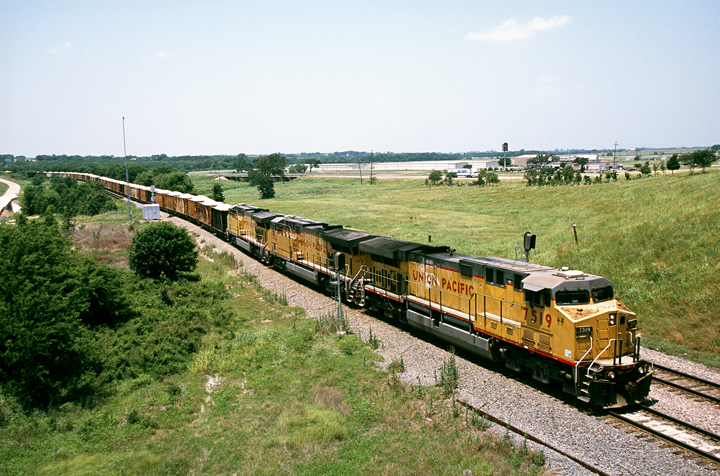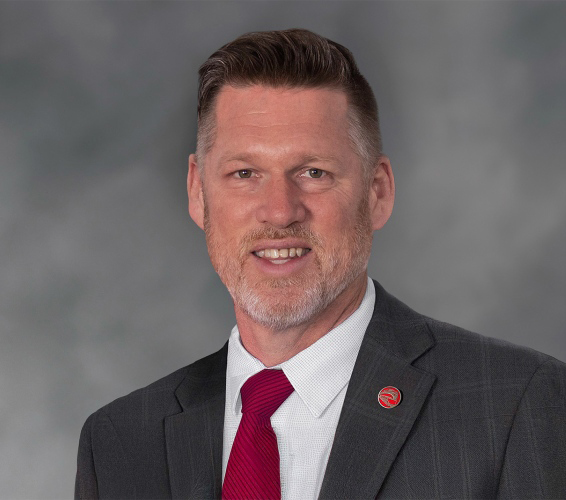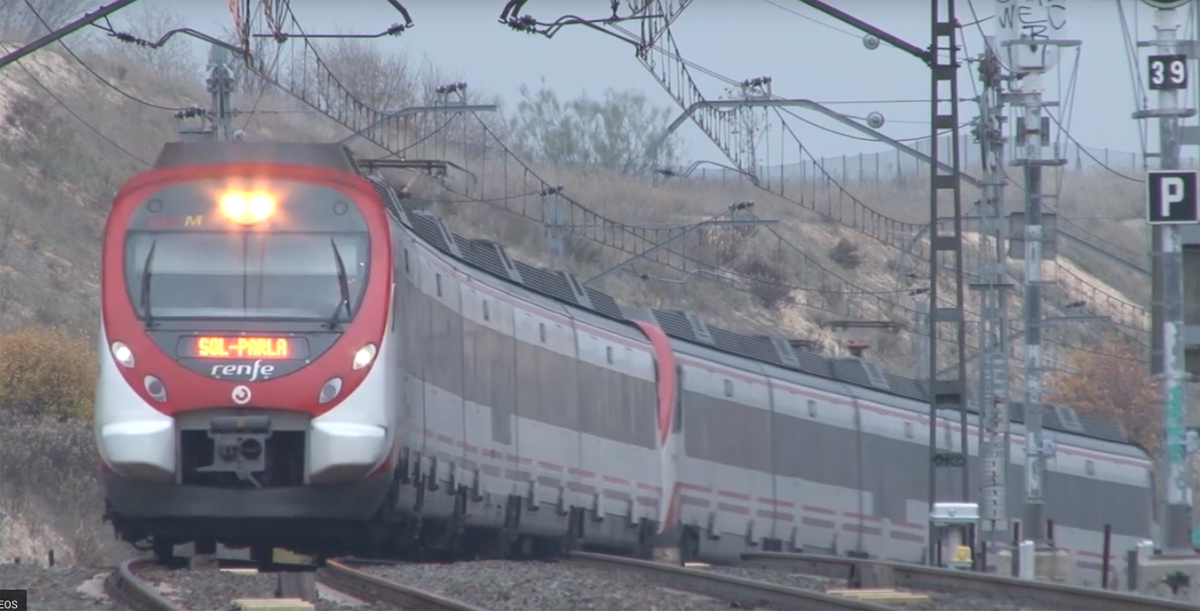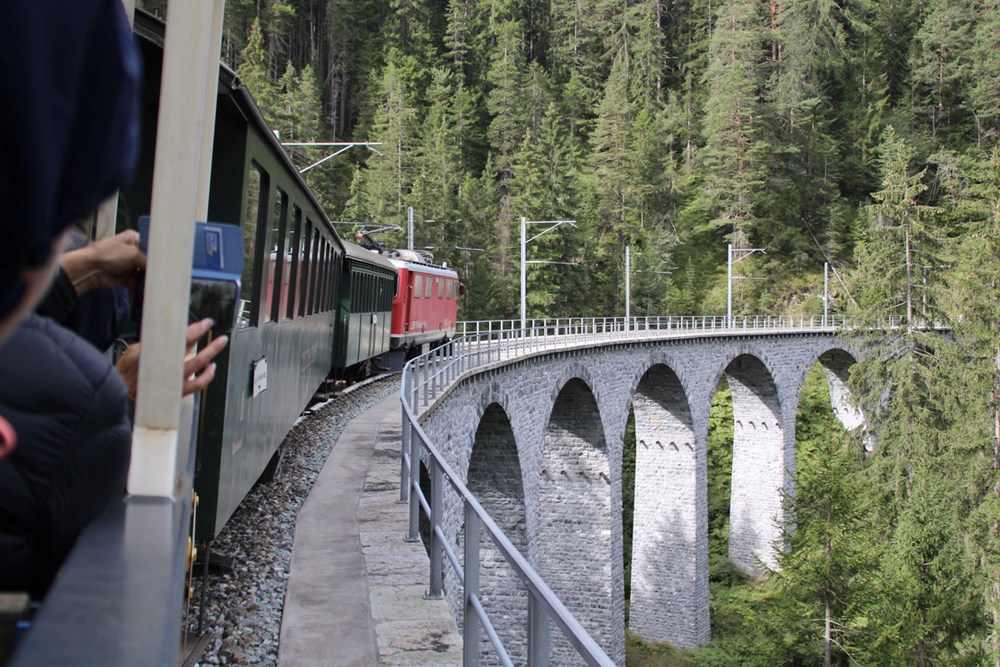“I know that they have the best of intentions, but the reality, some of the unintended consequences, I don’t truly think they understand,” Creel said Wednesday during the railroad’s fourth-quarter earnings call.
Maxed-out pipeline capacity, rail transportation bottlenecks, and a glut of stored oil prompted Alberta Premier Rachel Notley in late November to propose having the provincial government acquire its own fleet of 7,000 tank cars and 80 locomotives to move oil out of the province until new pipelines are built.
The equipment would begin to arrive in December 2019 and by August 2020 would boost the province’s crude shipments by 120,000 barrels per day, making a sizeable dent in the 190,000 barrels produced per day that currently has no way to get to market.
In December, Canadian Prime Minister Justin Trudeau said Ottawa would be open to a partnership to help fund the $1 billion (Canadian) fleet.
Provincial officials, however, have provided no details on how the fleet, if purchased, would be used.
“How do they plan? How do they do contracts? How do they plan their resources,” Creel said in response to an analyst question.
Notley also ordered oil producers to curtail production by nearly 9 percent this year, a decision that will be reviewed monthly as market conditions change.
CP has a responsibility to all customers, not just oil producers, Creel says, and the railroad must think about the long-term impact of making investments to support short-term crude oil traffic.
“We’ve got to think a little bit further out, we got to think about unintended consequences, and I think there’s a piece of that that’s either not understood or has not been considered that’s going to come into play,” Creel says.
CP and Canadian National have signed longer-term oil contracts with volume commitments to ensure that their investments in crews, locomotives, and track capacity would make financial sense in the event that oil shipments suddenly dry up, as they did a few years ago.
CP’s oil volumes peaked at 110,000 carloads in 2014, for example, only to fall to 38,000 in 2016 as pipeline capacity caught up to demand.
CP handled 25,000 carloads of crude out of Western Canada in the fourth quarter, says John Brooks, chief marketing officer, putting it on pace for 100,000 annual carloads.
Volume should hold steady for the next three months, Brooks says, before ramping up in the spring and second half of the year to a run rate of 120,000 annual carloads.
The railroad is running about 80 crude oil unit trains per month now, most of which are bound for refineries in the U.S.
It’s also seeing renewed interest from U.S. oil producers in the Bakken oil fields of North Dakota. CP is not currently moving Bakken crude.















I wonder if the tar oil coming out of Canada could go to refineries undiluted in heated tank cars, as opposed to diluted in a pipeline, which is more expensive.
Not mentioned in the hub bub is that Meridian Energy got its final permit to build a refinery in Belfield, North Dakota. Right in the middle of the Bakken where it can refine the Bakken “lite” crude. The air permit challenge lost in District Court in Jan 2019.
https://www.pipelinenews.ca/news/local-news/north-dakota-is-getting-a-new-oil-refinery-1.23365957
They are planning yet another US refinery, asked if Canada was in play, Meridian said “no, we are only looking at the US”
Phase 1 = 27k bbl
Phase 2 = 49k bbl
Gas, jet1, diesel will all be produced there. It will be next to the BNSF Frysburg rail terminal.
So instead of Alberta trying to bypass the pipeline constraints, why don’t they put their dough into getting a heavy crude refinery built near the tar sands and export refined products. Then CP/CN can work with shippers on getting the products to market instead of government entities trying to get their unfinished product to a refinery.
Refined products don’t have the large swings that unrefined products do.
The reason Justin Trudeau is often labeled as a socialist is that he is a socialist, albeit of the relatively moderate Roman Catholic variety. He has one-third of his father’s IQ, all of his father’s bad ideas, and none of his father’s brilliant vision.
I don’t know what the heck has happened to Alberta. I was there once (to ride the since-discontinued Fort MacMurray mixed train into Edmonton on CNR, recently annexed from NAR). This was 35 years ago. We went into the (forgive me, I can’t remember the Canadian term) provincial capitol building in Edmonton. There were three seats for the Liberals and all the other seats were for the Progressive Conservatives. Warmed my heart, one island of sanity in an entire continent.
After that, in the ensuing 35 years, Alberta joined North America’s march to the left.
To the point of this article, if there is oil to be moved, CN and CP can move it at market rates and everyone will earn a profit and everyone will be happy.
In case no one has noticed, when the Crown sold CNR to the private sector, CNR became one of the world’s most effective railways. When still owned by the Crown, not so much.
Until the most recent provincial election, Alberta was conservative. The conservative side of the political spectrum split apart with the Wild Rose party. The socialist NDP reaped the gains. Canadian provinces are parliamentary democracies so the provincial leader comes from the party with the most seats in the legislature. Rachel Notley, Alberta Premier, has been solidly behind the oil industry’s fight to get export capacity to tidewater. Selling oil to the US results in much lower prices than would be obtainable if the oil could be shipped to Asia. Unfortunately for Notley, the NDP government in BC is firmly opposed to pipeline capacity expansion.
Shipping the oil to east coast ports is off the table because the Province of Quebec is completely opposed to a new pipeline, and the federal Liberal party enjoys very strong support from Quebec voters. Trudeau represents a riding in Montreal.
The most recent idea is to sell the pipeline to Canadian First Nations whose chiefs are elected. The thought seems to be that the elected chiefs will work out a deal of some kind with the hereditary chiefs to let the project proceed. Economic benefits would flow to the First Nations if the project was built.
“Let’s see. Socialism is the control of the means of production by government. We need to make a 180 degree turn – less government, more competition. Notlley and Trudeau are socialists seeking more government control. To see how this works out, look at Venezuela.”
Or one could look at Norway’s StatOil, and conclude that instead oil production should be state-owned, for the greater benefit of Alberta’s taxpayers. But never let a contrasted counterexample stand in the way of a good old angry anti-government ideological rant.
Good observation, Mr. Dicenso.
I believe that price has a lot to do with the rail volume, but pipelines have more. The price per bbl doesn’t come in to play as much as the spread per bbl, the cost difference between one source and another. There have been a few new pipelines come on line here in the states that really cause the extra expense of rail trans from Canada simply too much to overcome. Recently the wellhead cost of some Canadian crudes fell to unheard of lows because they have no way to move it. From what I’ve read everyone in the industry in Canada doesn’t really expect rail to be a solution, they are needing a pipe or two. I believe Mr. Creel is correct in questioning the long term viability of the plan to simply drop more trains on them to handle.
Let’s see. Socialism is the control of the means of production by government. We need to make a 180 degree turn – less government, more competition. Notlley and Trudeau are socialists seeking more government control. To see how this works out, look at Venezuela.
Two interesting and contrasting comments below; one who fully understands sound business operating principles, the other who demonstrably has no clue.
Kind of like Canada’s grain car fleet?
I believe the real question is over whose railroad will these “government” unit trains move. If CP is expected to handle them; Keith has every right to expect the same sort of longer term volume commitment they are asking from private crude oil customers. CP would still have to provide crews, dispatching and the physical infrastructure over which these trains would operate. And whether loaded and shipped by the provincial government or an actual crude oil customer of CP; the additional trains would still be competing with other products/customers for track and time on the CP network.
Personally; I think it would be foolish for the provincial government to lease or purchase locomotives and tank cars for something like this. If they are that interested in “helping”; a better way would be to provide subsidies or loans to the oil producers themselves.
“some of the unintended consequences, I don’t truly think they understand,” Of course Creel would say this — shipper owned trains will directly whack his profits. He wants to maintain his predatory monopolistic pricing power.
This article also contains a rubbish statement (by whom?): “CP’s oil volumes peaked at 110,000 carloads in 2014, for example, only to fall to 38,000 in 2016 as pipeline capacity caught up to demand.”
The price of oil was over $100/barrel in 2016. In 2014 the price cratered to $30/barrel. The reduction in CP’s shipments of crude oil has everything to do with price and nothing to do with pipelines. Only because the oil market crashed, tar sands oil, a high-cost “heavy crude” product with low demand was pipeline capacity available.
Creel is disingenuous in his statements. And the reporting lacks curiosity.
Their are a lot of if’s in Alberta’s proposal.
First what agency is going to rent out the tank cars & locomotives and where is the money going to go?
Second what about track capacity? Yes they put CTC in and increased double tracking and siding length, but is that enough. Also why add more double tracking if traffic is a short term. You have to maintain it, pay taxes on it, service debt, etc. Good point about affecting other traffic such as grain & intermodal.
Yes you have more cars and locomotives. Who is responsible for maintenance on them and it’s associated costs.
They talk about needing train capacity in Alberta. Most of these OIL trains are bound for refineries in the US. What about capacity on the connecting railroads (Up, BNSF, NS, CSX) and how it will affect their operations. Remember they are experience a lot of traffic growth.
The governments solution to throw money at a problem even though the don’t understand the problem. Remember the saying: I’M FROM THE GOVERNMENT AND I’M HERE TO HELP YOU. Which means we’re here to screw it up.
“CP’s oil volumes peaked at 110,000 carloads in 2014, for example, only to fall to 38,000 in 2016 as pipeline capacity caught up to demand.”
I believe that Mr. Creel is also politely suggesting that the Province think things through in a little more detail before procuring rail equipment.
Besides which rail line(s) – CP and/or CN – is/are going to *magically* have capacity for the new trains, and who is actually going to operate them, where might the province plan to store some of their 7000 railcars & 80 locomotives should the market take a dip…?
Just a few of the MANY questions that Mr. Creel, Mr. Ruest and their staffs will have if Alberta decides they want to be in the “choo-choo business” (*sarcastic remark towards the province*).
A few comments. Carl Welch is labeling Notley and Trudeau as socialists, probably because he has seen them labelled that way by the extreme right wing. In fact both are more than willing, and prefer, that private enterprise take the lead in matters of commercial business. They are socialists in that they recognize that government has a role to play for the public good, such as providing roads, parks, equal health care for everyone, policing, etc..
The railways are not rushing in to spend money when the long term outlook is uncertain. If the traffic fails to materialise, or disappears in five years, there will be 7,000 tank cars looking for side tracks to be stored. That might be good for short lines, collecting somewhere between $500 and $1,000 per annum per car for track rental, but not good business sense. In addition, as far as I know, none of the existing tank car fleet is owned by the railroads. I believe they are leased from the car leasing companies, presumably by the oil companies themselves. If the oil shippers see a long term need for more cars they will be arranging to expand the fleet themselves.
I have to agree that the government is foolish with this proposal. There are three legs to be solved, and the rolling stock (cars and locos) is just one of them. Track capacity must also be addressed, with additional sidings and double track, and I don’t think they have recognised that is also important. The third leg is manpower, but that is probably the easiest to solve.
Eric suggested it is very analogous to the government grain cars built in the 1972-1983 era. Actually the differences are considerable. Those were built at the time the railways were forced to haul grain under the Crow rates, which hadn’t been raised since 1898 due to a strong lobby by the farmers. Runaway inflation of everything else meant by the late 1960’s the railways were losing money on every carload they hauled, and obviously reluctant to throw more money into a losing business. The government fleet was a stopgap measure to indirectly subsidise the railways, together with a similar program to rehabilitate many miles of grain dependent branchlines. Around 1983 the Crowsnest Pass agreement was finally put to a deserved death, and its legacy, the maximum revenue cap, brought rates up to normal current levels.
This subject EXACTLY embodies the criticisms of PSR by Matt Rose and the likely consequences that were reported here last week.
PSR is a “converyor belt” with balanced slows going in both directions. Inherent in PSR is physical plant, equipment and workers are reduced to the barest of minimums. There is no resilience or redundancy in the PSR system. It further abandons the railroads common carrier status and provides the rationale to turn away business.
There are enough commenters on News Wire and Fred’s blog that are shippers. I cannot recall a single comment by shippers in these comment sections that praise PSR or the monopolistic practices that have been adopted by the Class 1s.
All the class 1’s have regular serv9ice quality melt downs. Publicly traded railroads borrow cheap money to buy back shares and these long term debt exceeds what is spent on capital expenditures and dwarfs capacity expansion.
The Province of Alberta and the Canadian Government have the muscle to make this happen. If they want it, it will get done. The fact of the matter is any pipeline expansion if many years off. The federal government bought the Kinder Morgan Trans Mountain pipeline to federalize the project and remove the opposition in BC and First Nations. The pipeline will be expanded to handle a million barrels a day. Then it will be sold back to the private sector.
Are we to suppose that CP can impose its will on Alberta and the federal government? Aint gonna happen. Creel is the one with no clue. Hopefully PSR brings a new age of regulation of common carriers.
I certainly hope CP gets the business, if it ever materialize. But can the route from Moose Jaw to Minneapolis and down the US Midwest handle it? Did it finally get CTC and 12K sidings? That’s the thing: Alberta supplying the rolling stock doesn’t mean the crews are available and that the network can handle a sudden influx of traffic.
This is very analogous to the decision by Canada to get in the grain hauling business earlier. Railroads did not want to buy the equipment themselves unless they could charge higher transport rates to pay for the 15-20 year life it takes for the equipment costs to amortize. Canada didn’t want to give railroads the larger rate nor increase covered hopper car equipment costs write-offs over a shorter timeframe. So the government just stepped in and bought the equipment itself. The governments decision kept Canadian crops price cheaper on the export market but at what cost to the government to artificially deflate transportation costs?
Jf Turcotte: Actually, I believe Mr Creel is probably angling for CP to get the business. However, if private companies are unwilling to do something or chose to spend their money elsewhere due to competitive issues, it’s not Socialism to have the government step in and fill the gap for the greater good of the citizenry. It’s an Economic loss to Alberta to have the oil sit there and not be transported and sold.
If CP wants to step in and pay for everything then fine but my guess is CP doesn’t want to do it unless it can get a time guarantee on the traffic of 10-20 years which Alberta does not want to grant as it would prefer pipeline transit. Since the Alberta measure sounds like a stop gap rather than a perm traffic base for the rails, the issue becomes private companies not wanting to spend money on the traffic without a longer guarantee of keeping the traffic. Private railroads make this type of decision all the time when it comes to fixing a rail line or ordering new equipment. If government doesn’t step in here. What happens to the oil they can ship? What happens to the oil they cannot ship. I don’t want to get into comparisons with Venezuela since Venezuela was a wholesale confiscation of all large oil related private companies by the state for only political reasons. I think you will find in the case of Venezuela the goal of Russia’s proxy Cuba was to gain a cheap source of oil to replace Russian subsidies as well as to assist Russia with removing a large chunk of Venezuelan Oil from global markets so the Russians could sell their oil at a higher price. Apples and Oranges between Canada and Venezuela.